Fleurs du Mal Magazine


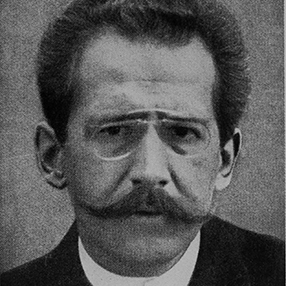
Auf einem Berg aus Zuckerkant
Auf einem Berg aus Zuckerkant,
unter einem blühenden Machandelbaum,
blinkt mein Pfefferkuchenhäuschen.
Seine Fensterchen sind aus Goldpapier,
aus seinem Schornstein raucht Watte.
Im grünen Himmel, über mir,
rauscht die Weihnachtstanne.
In meinem See aus Staniol
spiegeln sich alle ihre Engel, alle ihre Lichter!
Die kleinen Kinder stehn rum
und staunen mich an.
Ich bin der Zwerg Turlitipu.
Mein dicker Bauch ist aus Traganth,
meine Beinchen Streichhölzer,
meine listigen Äugelchen
Korinthen.
Arno Holz
(1863 – 1929)
Auf einem Berg aus Zuckerkant
(aus: “Phantasus”)
• fleursdumal.nl magazine
More in: #Experimental Poetry Archive, 4SEASONS#Winter, Archive G-H, Archive G-H, Expressionism, Grimm, Andersen e.o.: Fables, Fairy Tales & Stories
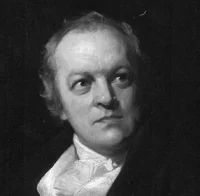
To Winter
O Winter! bar thine adamantine doors:
The north is thine; there hast thou built thy dark
Deep-founded habitation. Shake not thy roofs
Nor bend thy pillars with thine iron car.
He hears me not, but o’er the yawning deep
Rides heavy; his storms are unchain’d, sheathed
In ribbed steel; I dare not lift mine eyes;
For he hath rear’d his scepter o’er the world.
Lo! now the direful monster, whose skin clings
To his strong bones, strides o’er the groaning rocks:
He withers all in silence, and in his hand
Unclothes the earth, and freezes up frail life.
He takes his seat upon the cliffs, the mariner
Cries in vain. Poor little wretch! that deal’st
With storms; till heaven smiles, and the monster
Is driven yelling to his caves beneath Mount Hecla.
William Blake
(1757 – 1827)
To Winter
• fleursdumal.nl magazine
More in: 4SEASONS#Winter, Archive A-B, Archive A-B, Blake, William, CLASSIC POETRY
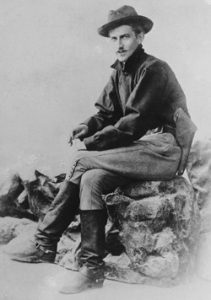
I saw a man
pursuing the horizon
I saw a man pursuing the horizon;
Round and round they sped.
I was disturbed at this;
I accosted the man.
“It is futile,” I said,
“You can never —”
“You lie,” he cried,
And ran on.
Stephen Crane
(1871 – 1900)
I saw a man pursuing the horizon
• fleursdumal.nl magazine
More in: *War Poetry Archive, Archive C-D, Archive C-D, Stephen Crane

A Burnt Ship
Out of a fired ship, which by no way
But drowning could be rescued from the flame,
Some men leap’d forth, and ever as they came
Near the foes’ ships, did by their shot decay;
So all were lost, which in the ship were found,
They in the sea being burnt, they in the burnt ship drown’d.
John Donne
(1572–1631)
A Burnt Ship
• fleursdumal.nl magazine
More in: Archive C-D, Archive C-D, Donne, John

Crossing the Bar
Sunset and evening star,
And one clear call for me!
And may there be no moaning of the bar,
When I put out to sea,
But such a tide as moving seems asleep,
Too full for sound and foam,
When that which drew from out the boundless deep
Turns again home.
Twilight and evening bell,
And after that the dark!
And may there be no sadness of farewell,
When I embark;
For tho’ from out our bourne of Time and Place
The flood may bear me far,
I hope to see my Pilot face to face
When I have crost the bar.
Alfred Lord Tennyson
(1809-1892)
Crossing the Bar
• fleursdumal.nl magazine
More in: Archive S-T, Archive S-T, Tennyson, Alfred Lord

Simplify Me When I’m Dead
Remember me when I am dead
and simplify me when I’m dead.
As the processes of earth
strip off the colour of the skin:
take the brown hair and blue eye
and leave me simpler than at birth,
when hairless I came howling in
as the moon entered the cold sky.
Of my skeleton perhaps,
so stripped, a learned man will say
“He was of such a type and intelligence,” no more.
Thus when in a year collapse
particular memories, you may
deduce, from the long pain I bore
the opinions I held, who was my foe
and what I left, even my appearance
but incidents will be no guide.
Time’s wrong-way telescope will show
a minute man ten years hence
and by distance simplified.
Through that lens see if I seem
substance or nothing: of the world
deserving mention or charitable oblivion,
not by momentary spleen
or love into decision hurled,
leisurely arrive at an opinion.
Remember me when I am dead
and simplify me when I’m dead.
Keith Douglas
(1920 – 1944)
Simplify Me When I’m Dead
• fleursdumal.nl magazine
More in: Archive C-D, Archive C-D, Douglas, Keith, WAR & PEACE
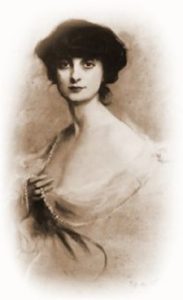
L’hiver
C’est l’hiver sans parfum ni chants.
Dans le pré, les brins de verdure
Percent de leurs jets fléchissants
La neige étincelante et dure.
Quelques buissons gardent encor
Des feuilles jaunes et cassantes
Que le vent âpre et rude mord
Comme font les chèvres grimpantes.
Et les arbres silencieux
Que toute cette neige isole
Ont cessé de se faire entre eux
Leurs confidences bénévoles.
– Bois feuillus qui, pendant l’été,
Au chaud des feuilles cotonneuses
Avez connu les voluptés
Et les cris des huppes chanteuses,
Vous qui, dans la douce saison,
Respiriez la senteur des gommes,
Vous frissonnez à l’horizon
Avec des gestes qu’ont les hommes.
Vous êtes las, vous êtes nus,
Plus rien dans l’air ne vous protège,
Et vos coeurs tendres ou chenus
Se désespèrent sur la neige.
– Et près de vous, frère orgueilleux,
Le sapin où le soleil brille
Balance les fruits écailleux
Qui luisent entre ses aiguilles.
Anna de Noailles
(1876 – 1933)
L’hiver
• fleursdumal.nl magazine
More in: 4SEASONS#Winter, Archive M-N, Archive M-N, Noailles, Anna de

En hiver
Le sol trempé se gerce aux froidures premières,
La neige blanche essaime au loin ses duvets blancs,
Et met, au bord des toits et des chaumes branlants,
Des coussinets de laine irisés de lumières.
Passent dans les champs nus les plaintes coutumières,
A travers le désert des silences dolents,
Où de grands corbeaux lourds abattent leurs vols lents
Et s’en viennent de faim rôder près des chaumières.
Mais depuis que le ciel de gris s’était couvert,
Dans la ferme riait une gaieté d’hiver,
On s’assemblait en rond autour du foyer rouge,
Et l’amour s’éveillait, le soir, de gars à gouge,
Au bouillonnement gras et siffleur, du brassin
Qui grouillait, comme un ventre, en son chaudron d’airain.
Emile Verhaeren
(1855 – 1916)
En hiver
• fleursdumal.nl magazine
More in: 4SEASONS#Winter, Archive U-V, Archive U-V, Verhaeren, Emile

I Am Not Yours
I am not yours, not lost in you,
Not lost, although I long to be
Lost as a candle lit at noon,
Lost as a snowflake in the sea.
You love me, and I find you still
A spirit beautiful and bright,
Yet I am I, who long to be
Lost as a light is lost in light.
Oh plunge me deep in love—put out
My senses, leave me deaf and blind,
Swept by the tempest of your love,
A taper in a rushing wind.
Sara Teasdale
(1884-1933)
I Am Not Yours
• fleursdumal.nl magazine
More in: #Editors Choice Archiv, Archive S-T, Archive S-T, Teasdale, Sara
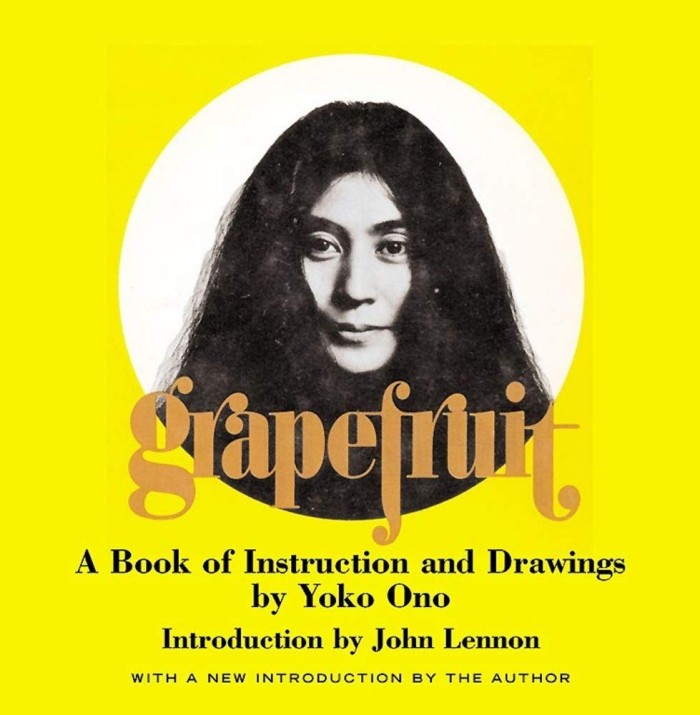
TATE MODERN LONDON
Yoko Ono Music of the Mind
15 February – 1 September 2024
Delve into the powerful, participatory work of artist and activist Yoko Ono
Yoko Ono (1933) is a leading figure in conceptual and performance art, experimental film and music. Developing her practice in America, Japan and the UK, she is renowned for her activism, work for world peace, and environmental campaigns. Ideas are central to her art, often expressed in poetic, humorous and radical ways.
Spanning more than seven decades, the exhibition focuses on key moments in Ono’s career, including her years in London from 1966 to 1971, where she met John Lennon (1940 – 1980).
The show explores some of Ono’s most talked about artworks and performances, from Cut Piece (1964), where people were invited to cut off her clothing, to her banned Film No.4 (Bottoms) (1966-67) which she created as a ‘petition for peace’.
Alongside her early performances, works on paper, objects, and music, audiences will discover a selection of her activist projects such as PEACE is POWER and Wish Tree, where visitors can contribute personal wishes for peace.
Through her instructions and event scores, Ono invites visitors to take part in both simple acts of the imagination and active encounters with her works.
The exhibition is organised by Tate Modern, London in collaboration with Kunstsammlung Nordrhein-Westfalen, Düsseldorf
Y O K O O N O & J O H N L E N N O N
• fleursdumal.nl magazine
More in: #Editors Choice Archiv, - Book Lovers, - Book Stories, Archive K-L, Archive O-P, Archive Q-R, Art Criticism, Exhibition Archive, FDM in London, Pax for peace, Performing arts, Yoko Ono & John Lennon

Il faut tout perdre
Il faut tout perdre, il faut vous obéir.
Je vous les rends ces lettres indiscrètes,
De votre cœur éloquents interprètes,
Et que le mien eût voulu retenir ;
Je vous les rends. Vos yeux à chaque page
Reconnaîtront l’amour et son langage,
Nos doux projets, vos serments oubliés,
Et tous mes droits par vous sacrifiés.
C’était trop peu, cruelle Éléonore,
De m’arracher ces traces d’un amour
Payé par moi d’un éternel retour ;
Vous ordonnez que je vous rende encore
Ces traits chéris, dont l’aspect enchanteur
Adoucissait et trompait ma douleur.
Pourquoi chercher une excuse inutile,
En reprenant ces gages adorés
Qu’aux plus grands biens j’ai toujours préférés ?
De vos rigueurs le prétexte est futile.
Non, la prudence et le devoir jaloux
N’exigent pas ce double sacrifice.
Mais ces écrits qu’un sentiment propice
Vous inspira dans des moments plus doux,
Mais ce portrait, ce prix de ma constance,
Que sur mon cœur attacha votre main,
En le trompant, consolaient mon chagrin :
Et vous craignez d’adoucir ma souffrance ;
Et vous voulez que mes yeux désormais
Ne puissent plus s’ouvrir sur vos attraits,
Et vous voulez, pour combler ma disgrâce,
De mon bonheur ôter jusqu’à la trace.
Ah ! j’obéis, je vous rends vos bienfaits.
Un seul me reste, il me reste à jamais.
Oui, malgré vous, qui causez ma faiblesse,
Oui, malgré moi, ce cœur infortuné
Retient encore et gardera sans cesse
Le fol amour que vous m’avez donné.
Évariste de Parny
(1753-1814)
Il faut tout perdre
Élégies (1784)
• fleursdumal.nl magazine
More in: # Classic Poetry Archive, Archive O-P, Archive O-P

To a Wreath of Snow
O transient voyager of heaven!
O silent sign of winter skies!
What adverse wind thy sail has driven
To dungeons where a prisoner lies?
Methinks the hands that shut the sun
So sternly from this morning’s brow
Might still their rebel task have done
And checked a thing so frail as thou.
They would have done it had they known
The talisman that dwelt in thee,
For all the suns that ever shone
Have never been so kind to me!
For many a week, and many a day
My heart was weighed with sinking gloom
When morning rose in mourning grey
And faintly lit my prison room
But angel like, when I awoke,
Thy silvery form so soft and fair
Shining through darkness, sweetly spoke
Of cloudy skies and mountains bare;
The dearest to a mountaineer
Who, all life long has loved the snow
That crowned her native summits drear,
Better, than greenest plains below.
And voiceless, soulless, messenger
Thy presence waked a thrilling tone
That comforts me while thou art here
And will sustain when thou art gone
Emily Brontë
(1818 – 1848)
To a Wreath of Snow
• fleursdumal.nl magazine
More in: # Classic Poetry Archive, 4SEASONS#Winter, Archive A-B, Archive C-D, Brontë, Anne, Emily & Charlotte
Thank you for reading Fleurs du Mal - magazine for art & literature